It is without a doubt, the pioneer model for multimedia storytelling in the digital age. The New York Times' “Snow Fall: The Avalanche at Tunnel. Creek” won a Pulitzer Prize (2013) and inspired many with its well crafted use of multimedia elements woven within the narrative.
I, for one, thought that Snow Fall would bring about greater experimentation with the genre of multimedia storytelling. Not so, it seems, and, in some cases, for reasons that are legitimate: lack of human resources, budgets and technological development.
And so, 20 months after Snow Fall, here are at least three recent multimedia stories all of which are excellent examples of the genre.
All emphasize segmentation, all introduce texture woven into the narrative via photo galleries, quotes, videos, highlights. All navigate the reader to related content.
Let's take a look!
Wired: The Most Wanted Man in the World
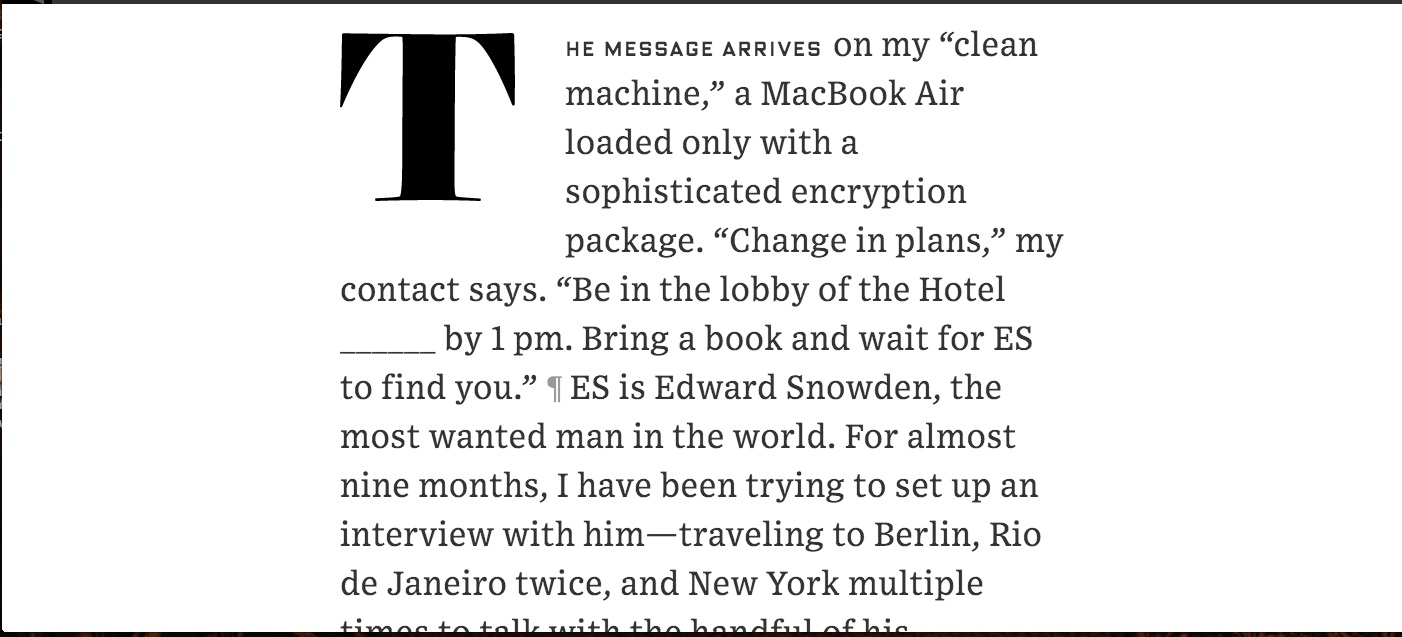
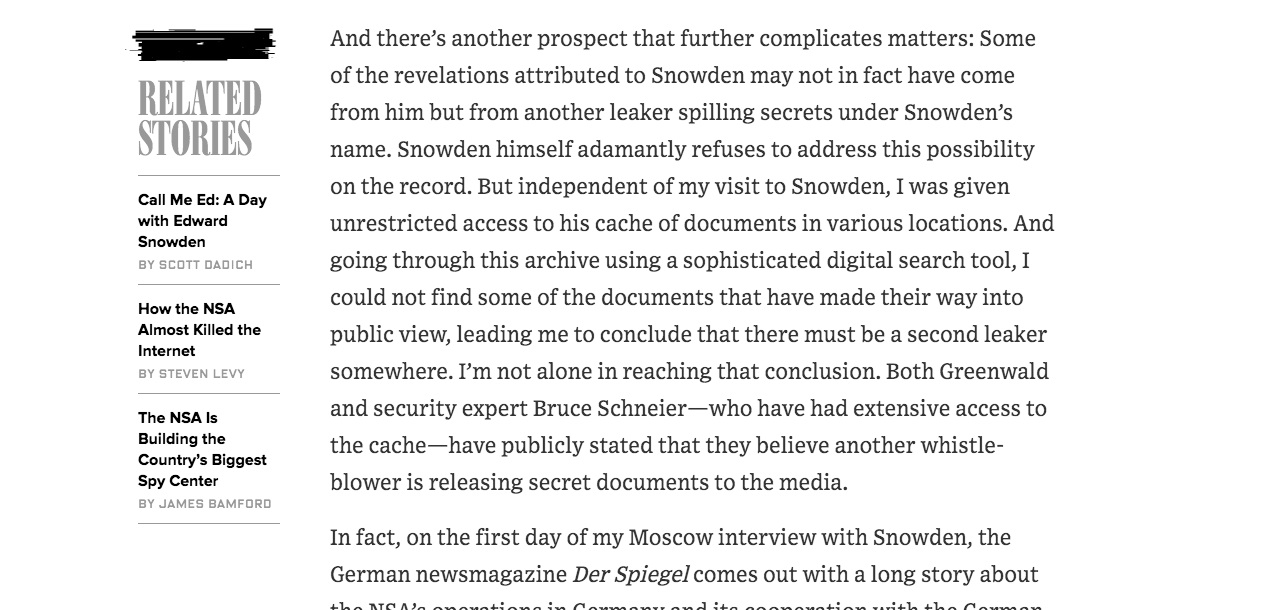
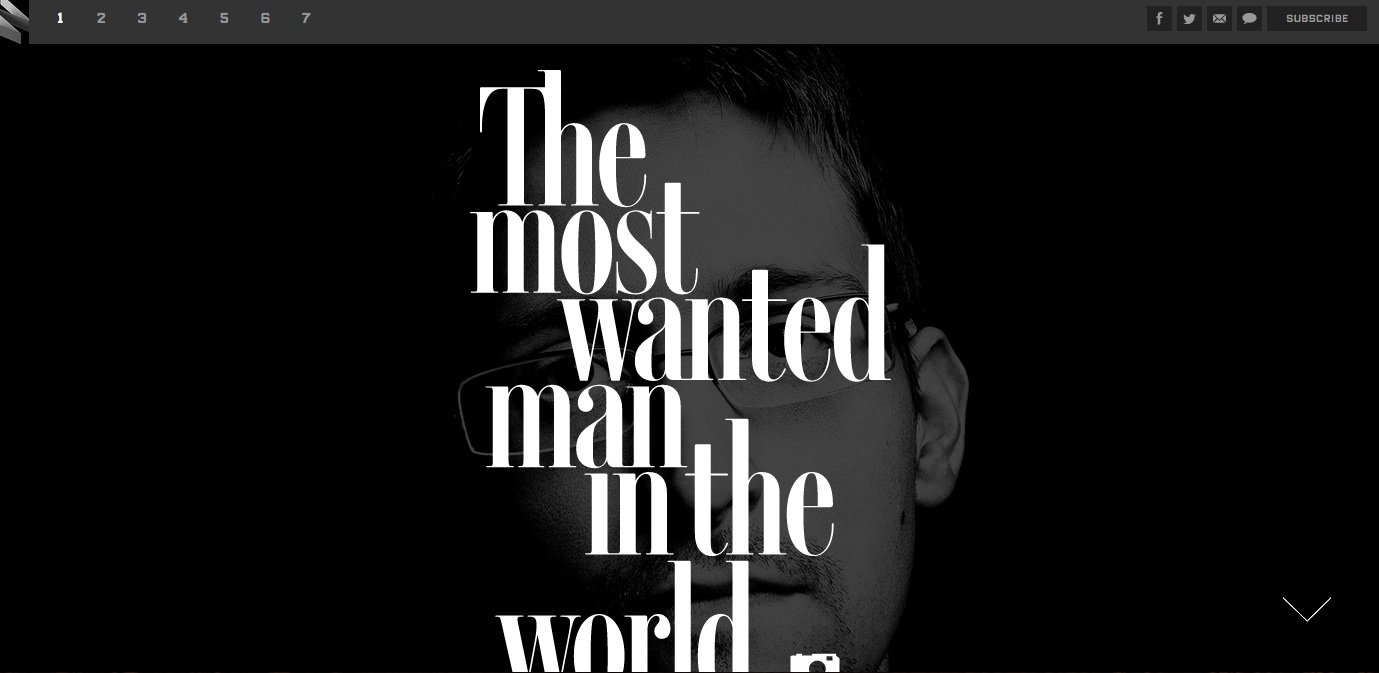
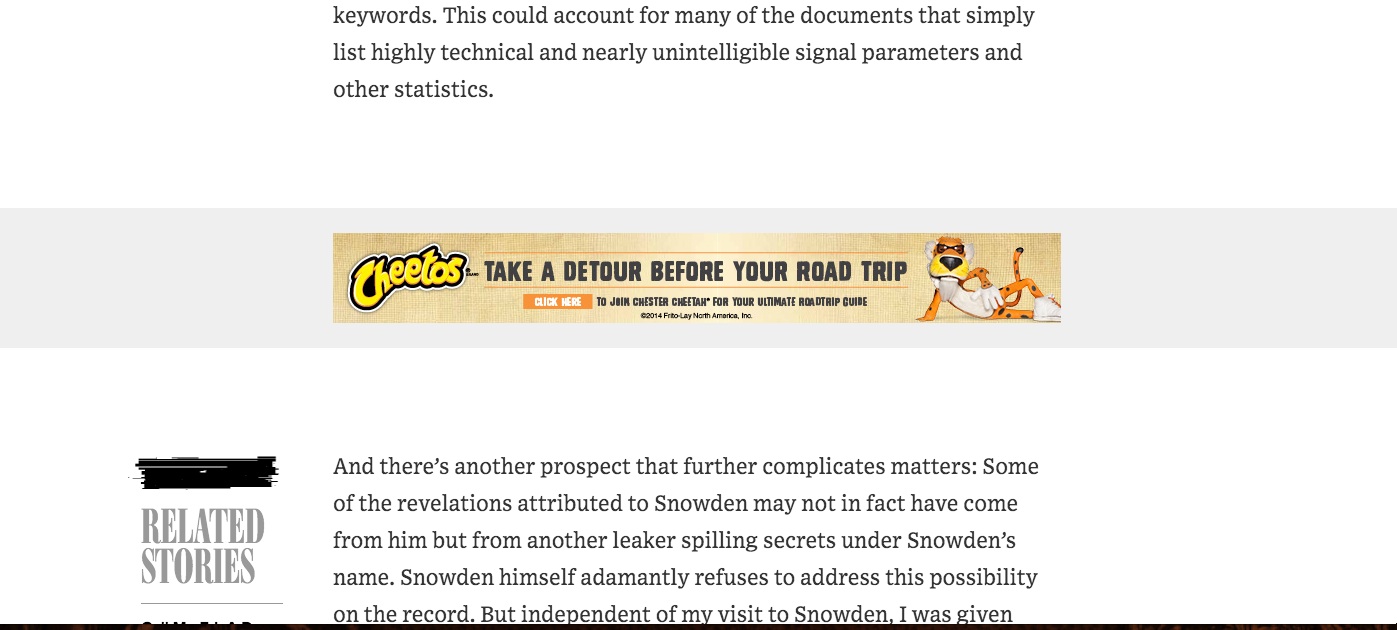
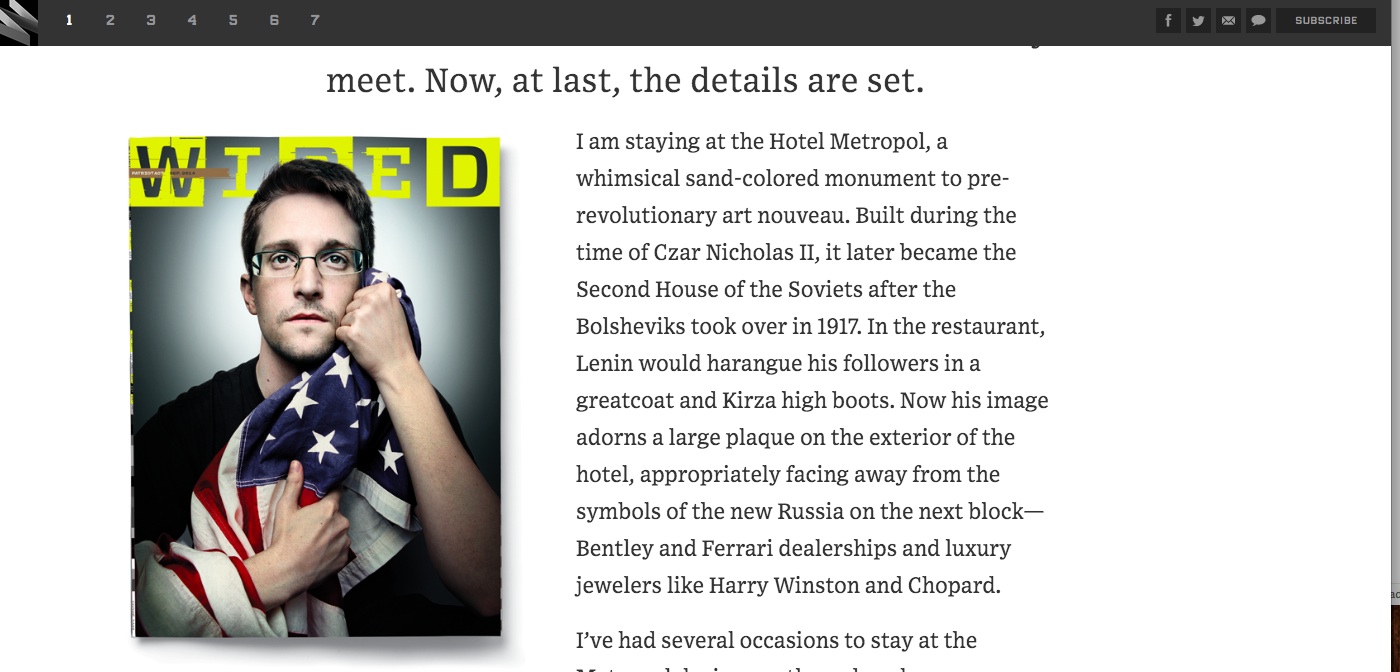
http://www.wired.com/2014/08/edward-snowden
The opening paragraph of the narrative:
HE MESSAGE ARRIVES on my “clean machine,” a MacBook Air loaded only with a sophisticated encryption package. “Change in plans,” my contact says. “Be in the lobby of the Hotel ______ by 1 pm. Bring a book and wait for ES to find you.” ¶ ES is Edward Snowden, the most wanted man in the world. For almost nine months, I have been trying to set up an interview with him—traveling to Berlin, Rio de Janeiro twice, and New York multiple times to talk with the handful of his confidants who can arrange a meeting. Among other things, I want to answer a burning question: What drove Snowden to leak hundreds of thousands of top-secret documents, revelations that have laid bare the vast scope of the government’s domestic surveillance programs? In May I received an email from his lawyer, ACLU attorney Ben Wizner, confirming that Snowden would meet me in Moscow and let me hang out and chat with him for what turned out to be three solid days over several weeks. It is the most time that any journalist has been allowed to spend with him since he arrived in Russia in June 2013. But the finer details of the rendezvous remain shrouded in mystery. I landed in Moscow without knowing precisely where or when Snowden and I would actually meet. Now, at last, the details are set.
The Guardian: Beyond the Border
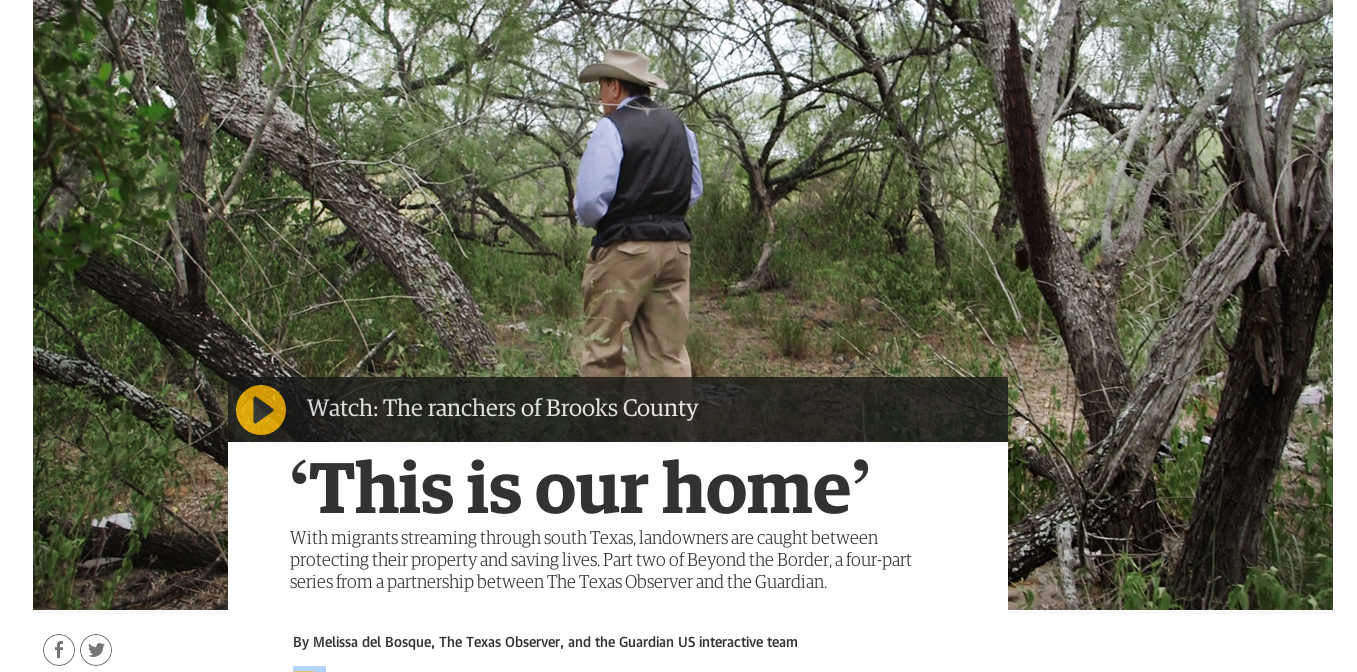
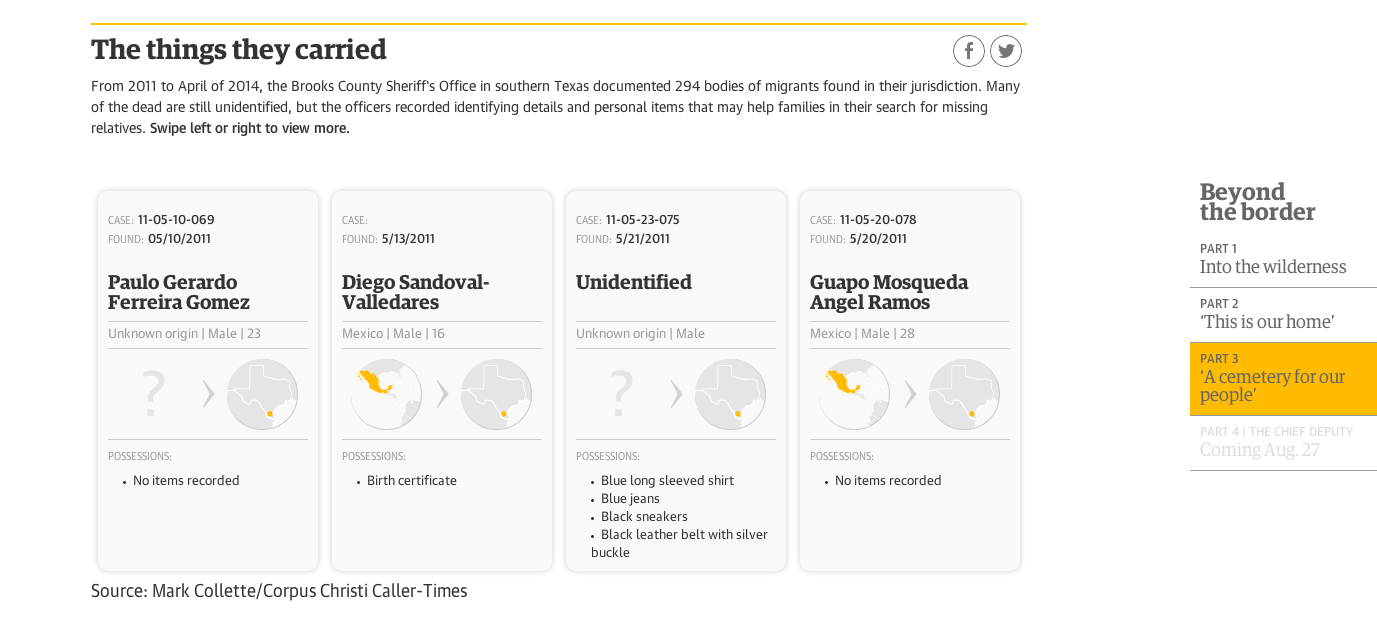
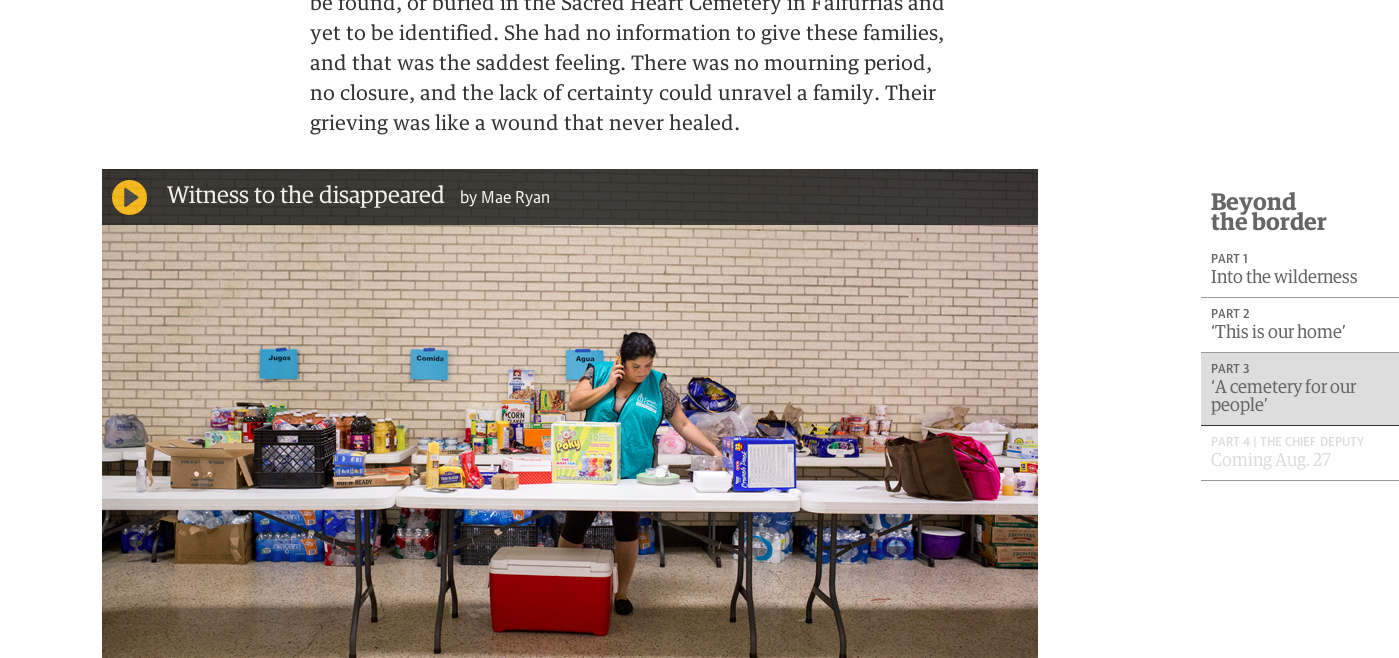
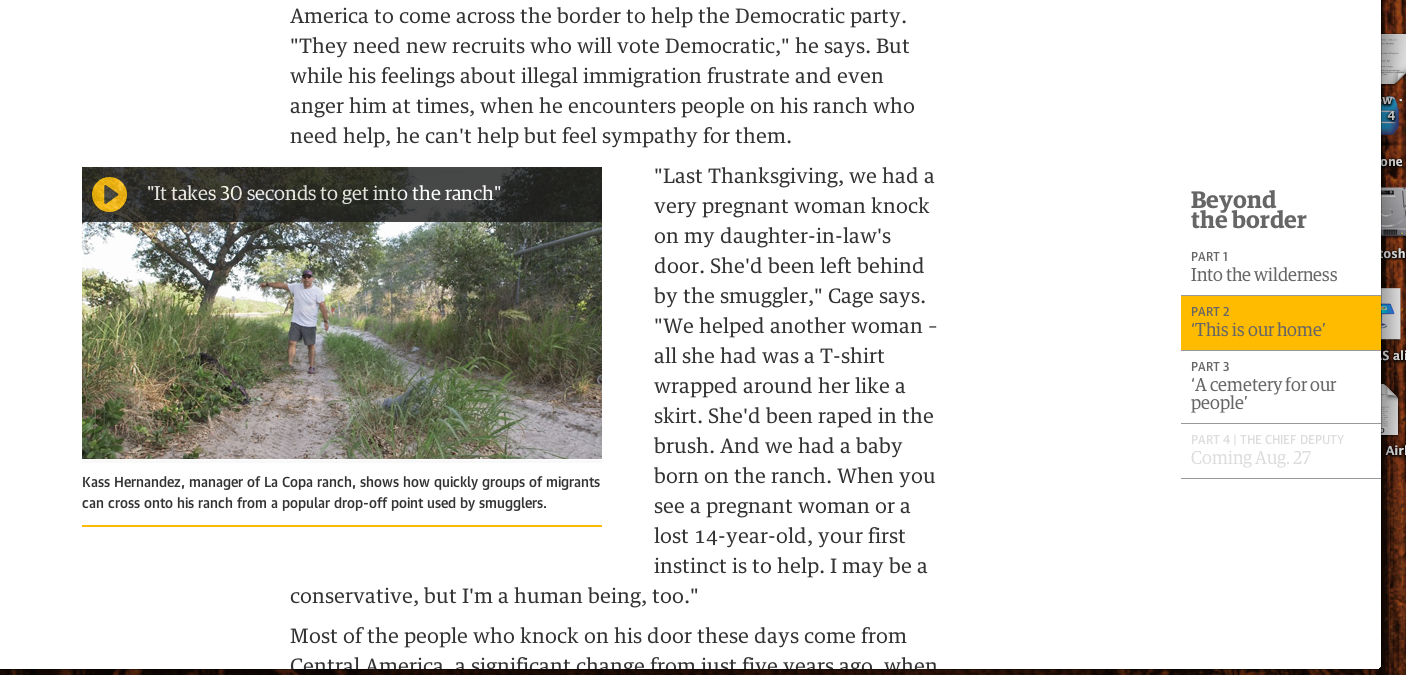
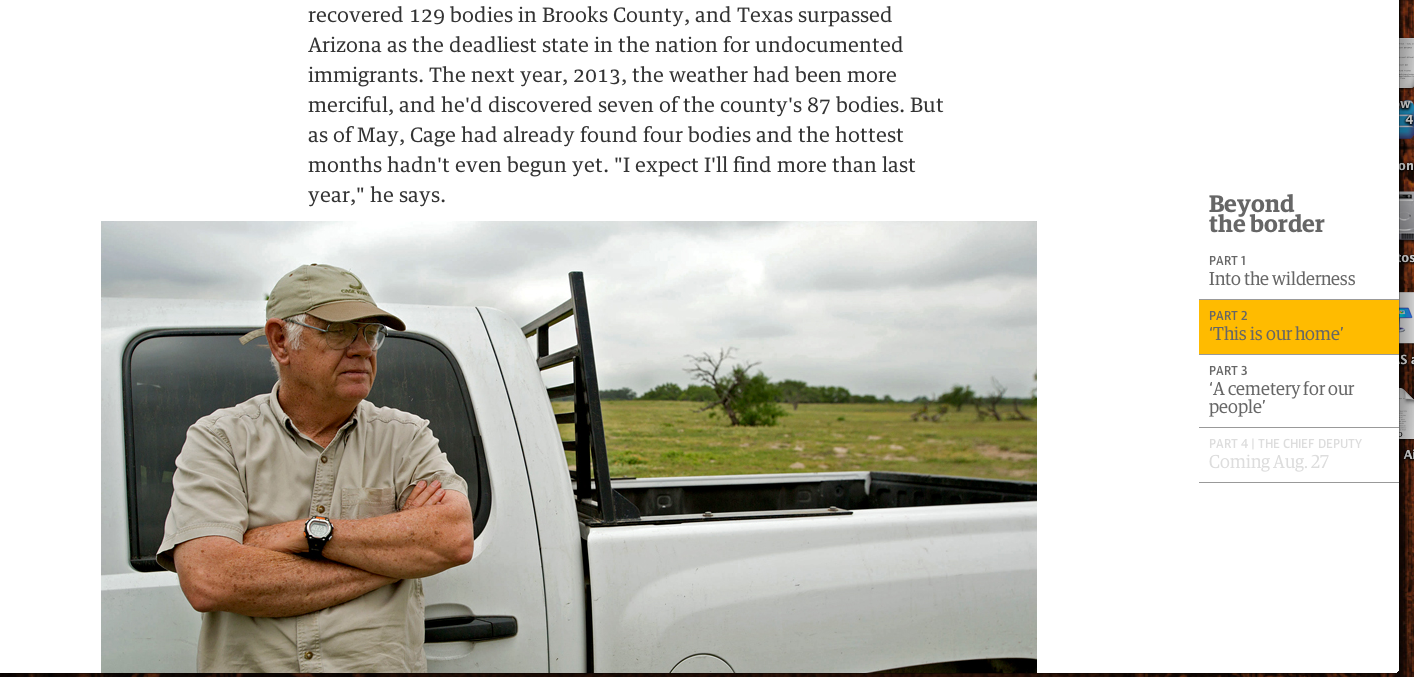
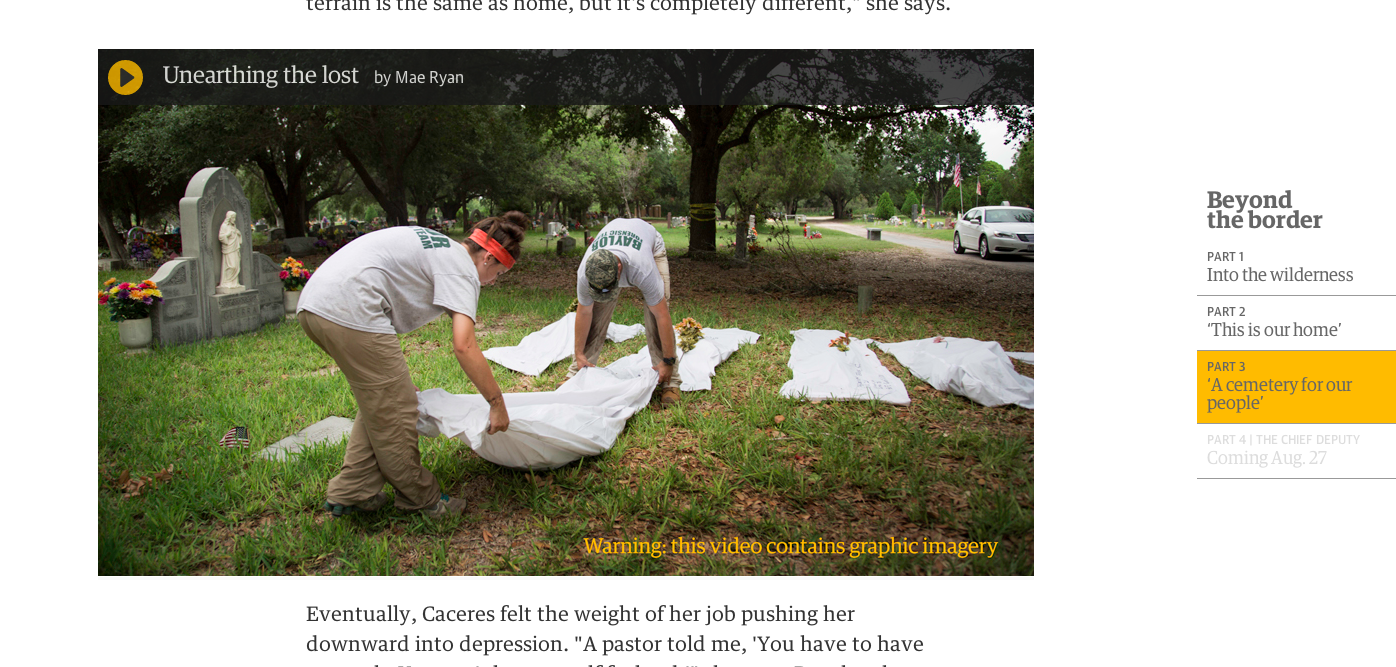
First two paragraphs of the narrative:
Presnall Cage was driving the outskirts of his ranch when he saw the black tennis shoes. The sight of them up ahead, neatly arranged in a rut of the sandy road, filled him with dread. Several vultures perched in a sprawling live oak tree near the road, and two more flew in lazy circles. He already knew what he would find underneath the tree.
This time it was a young man – what was left of him – his body already decomposing in the heat. In his pockets were US credit cards and an ID. It was always a sad thing to witness, yet another life lost on his land. Like hundreds of others in the past decade, the man had died in Brooks County, Texas, trying to circumvent an immigration checkpoint two miles south of Cage's ranch. He called the sheriff's department. By now he had the phone number memorized.
Sports Illustrated: Neil Leifer-The Boxing Photos
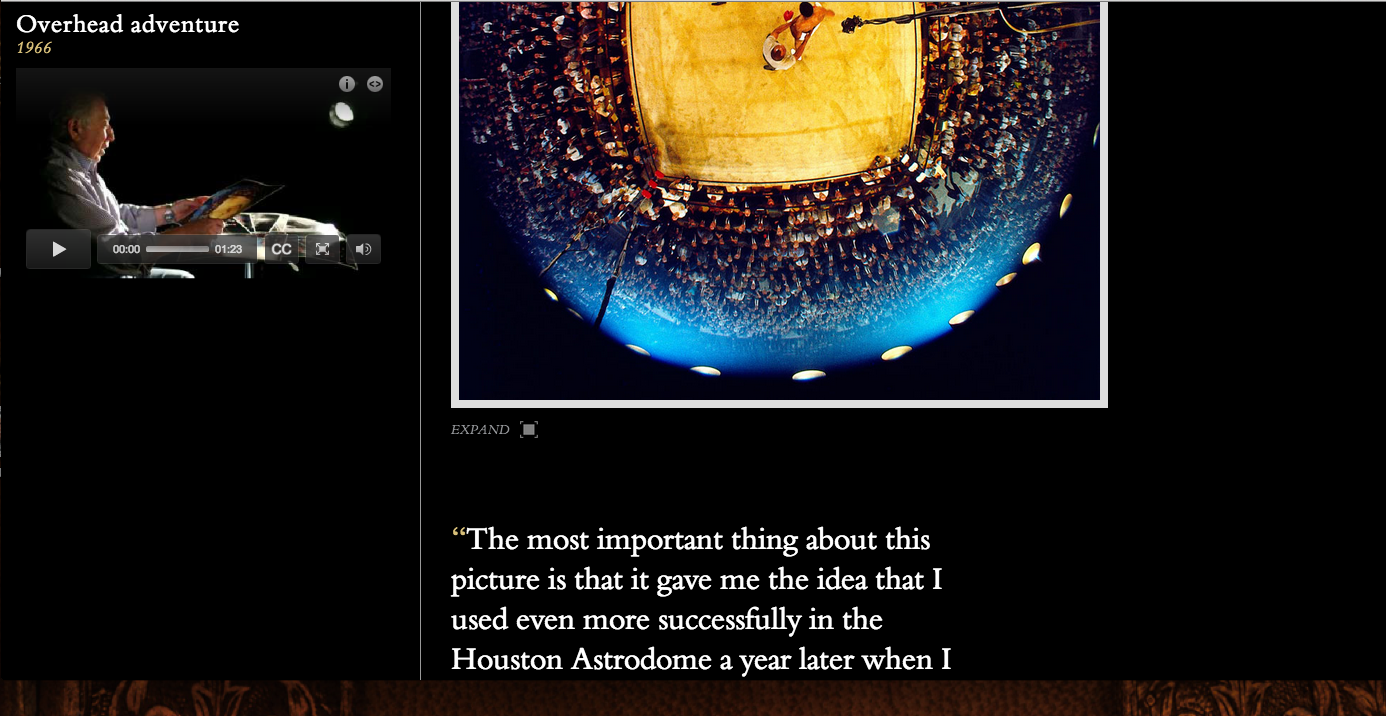
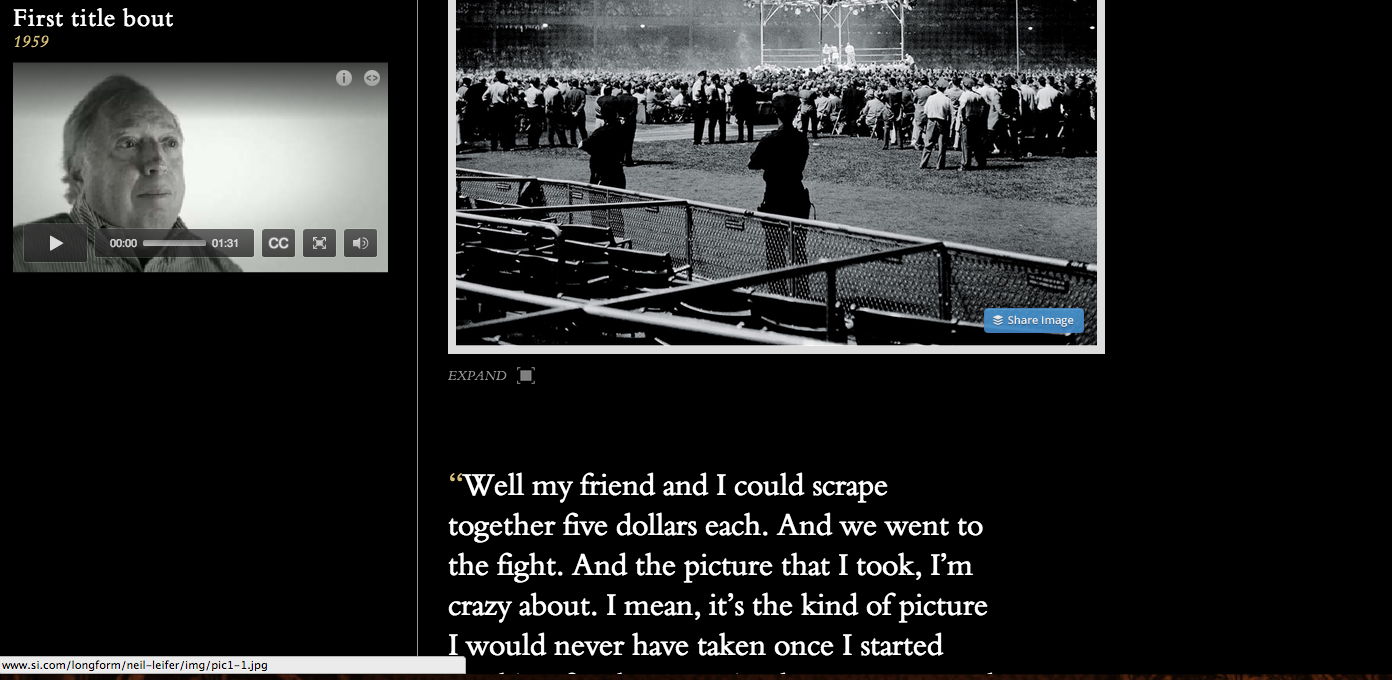
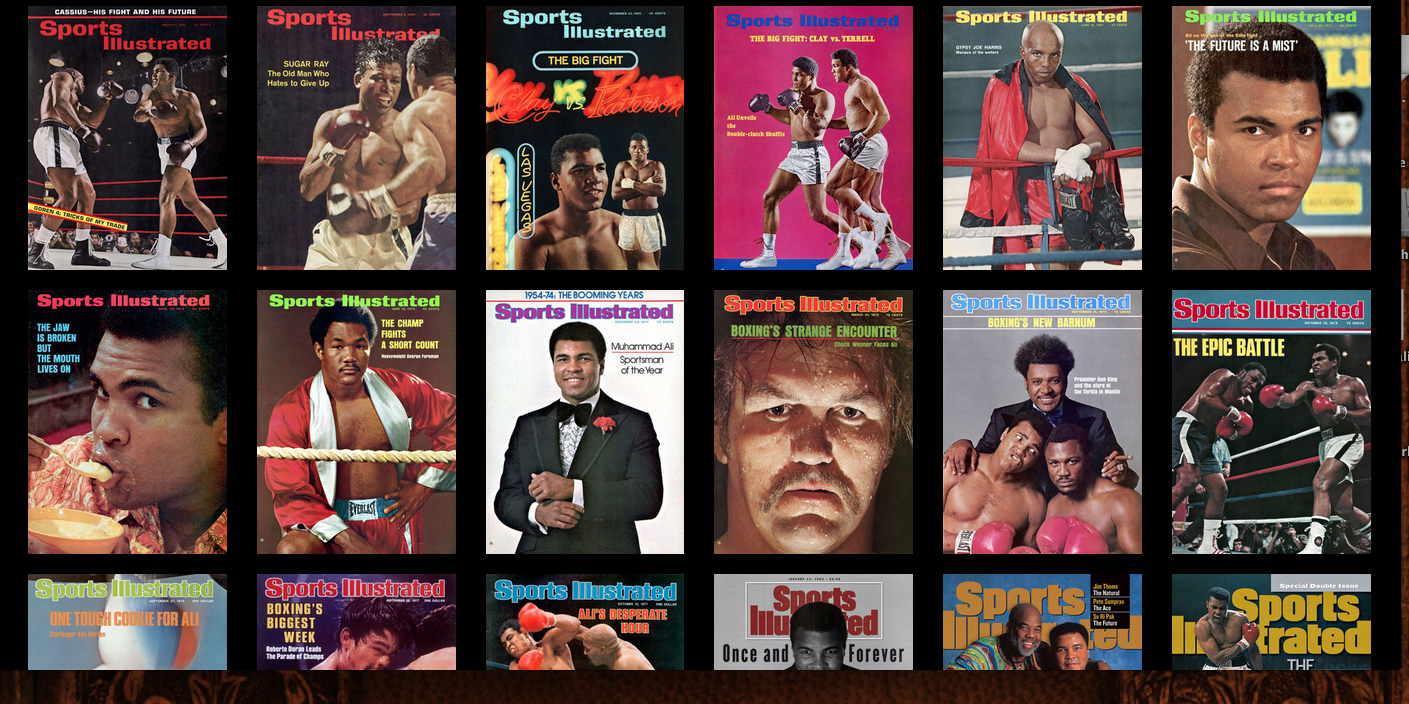
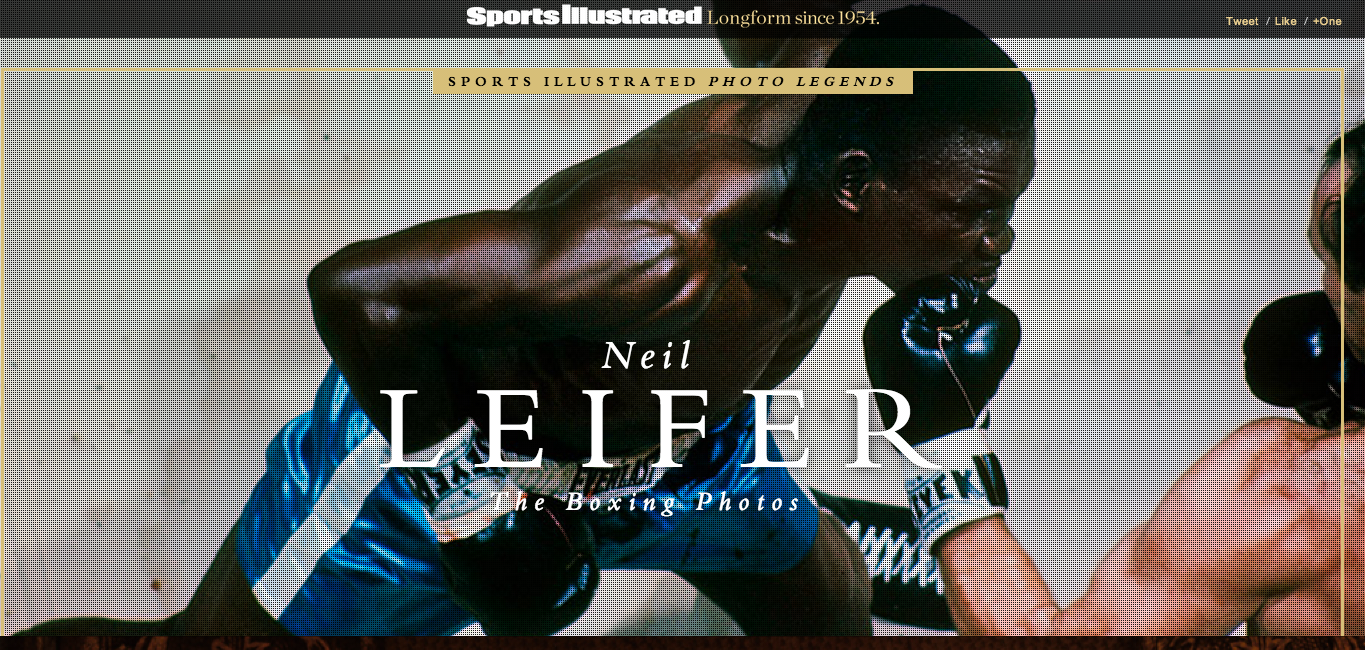
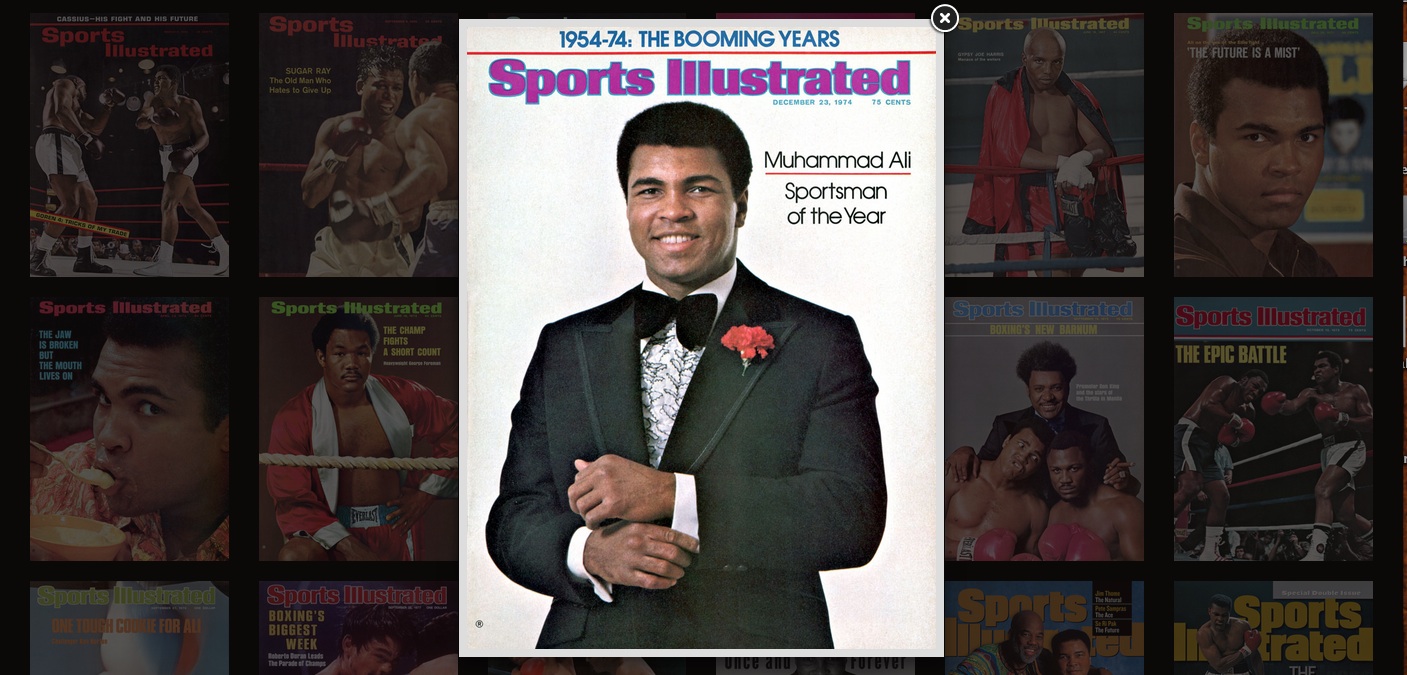
http://www.si.com/longform/neil-leifer/index.html
First paragraph of the narrative:
In this corner of the ring — in fact, in every corner of the ring — stands Neil Leifer. The undisputed champ of boxing photography, Leifer has delivered some of the sport’s most iconic and memorable images in Sports Illustrated’s 60-year history, none more so than Ali posed over Liston. Like a skilled practitioner in the ring, Leifer brings a variety of skills to bear, adjusting his plan on the fly. Some of his handiwork is predicated on power and force. Other times, he relies on instinct and imagination and subtle nuance, finding openings that only he sees.
What next for multimedia stories?
Not much has happened since Snowfall in terms of volume, although I hear a lot of conversation in newsrooms about “plans to do more with multimedia”.
I imagine that once newsrooms have sorted out their storytelling philosophy around the multimedia quartet of platforms, then editors and journalists/designers will engage in the fun part of conceptualizing and executing more multimedia stories.
These three examples should provide inspiration and good examples.
Other multimedia storytelling examples worth studying:
Snow Fall: The Avalanche at Tunnel Creek
http://www.nytimes.com/projects/2012/snow-fall/#/?part=tunnel-creek
Tomato Can Blues: a wonderful story, spectacularly illustrated, with special effects that mesmerized;
http://www.nytimes.com/projects/2013/tomato-can-blues/
The Russia Left Behind: photo sets the scene
http://www.nytimes.com/newsgraphics/2013/10/13/russia/
Firestorm in The Guardian
http://www.theguardian.com/world/interactive/2013/may/26/firestorm-bushfire-dunalley-holmes-family
The Jockey in The New York Times
http://www.nytimes.com/projects/2013/the-jockey/?_r=0#/?chapt=introduction
Chasseurs du temps (Time keepers), L’Equipe (France)
http://www.lequipe.fr/explore/chasseurs-de-temps/#CHAP04
A Google Spreadsheet of Snowfall-type stories:
https://docs.google.com/spreadsheet/ccc?key=0AnWYxsUNHS4FdGVYMnpkdGdTNTU0RS1SXzktcnZwRWc#gid=0
Longform magazine features
http://www.spd.org/2013/10/longform-magazine-features.php
VG of Norway: Prior to Norwegian elections
http://www.vg.no/spesial/2013/valg/tegneserie/
Our previous blogposts on multimedia storytelling
Storytelling in the digital age: some essentials endure
https://garciamedia.com/blog/articles/pstorytelling_in_the_digital_age_some_essentials_endure_p
The (happy) evolution of those multimedia story packages
https://garciamedia.com/blog/articles/pthe_happy_evolution_of_those_multimedia_story_packages_p
Miust read piece about Snowfall from Dr. Roy Peter Clark
Snow-blind: The challenge of voice and vision in multi-media storytelling
Don't miss this insightful essay about storytelling techniques and the award winning New York Times' multimedia piece, Snow Fall: The Avalanche at Tunnel Creek.
Highlight
Much of the original praise for the work was worshipful and, I believe, superficial. The dazzling visual effects were there for all to see and left potential critics, dare I use the term, snow-blind.
“Snow Fall” is many good things, but great storytelling is not one of them. I will argue that the innovative visual elements that brought it fame detract from the power of the narrative.